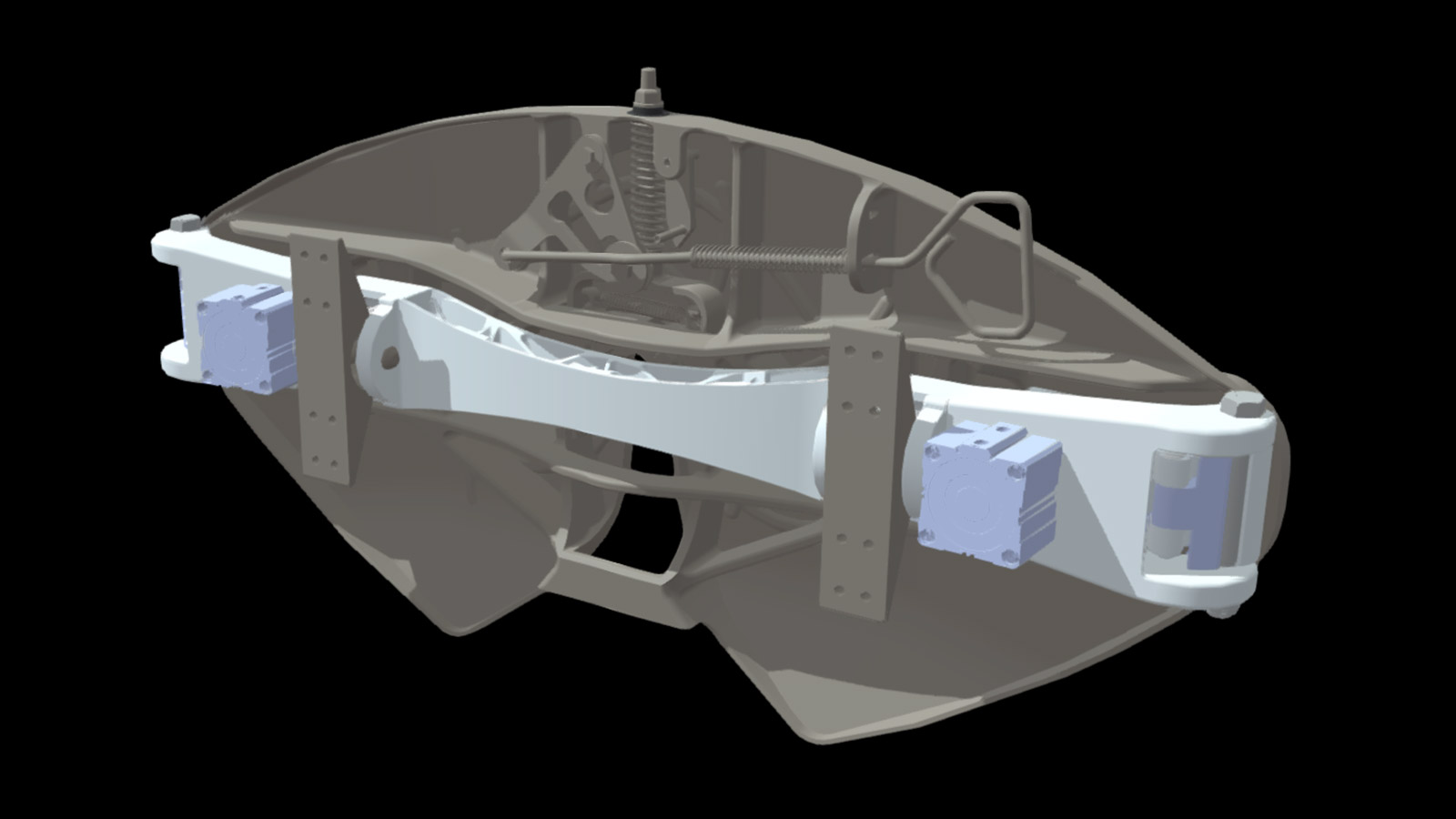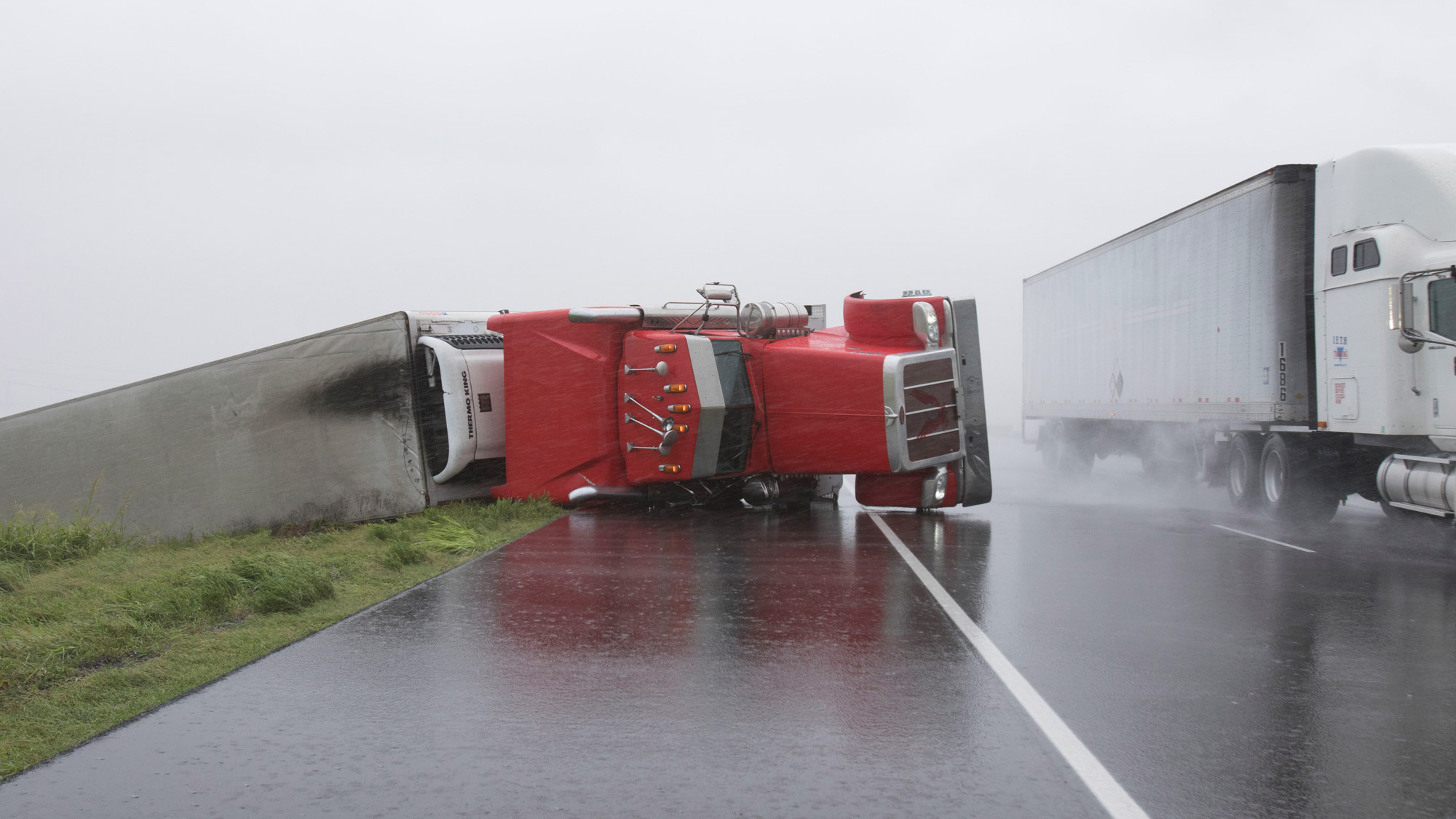This Startup's Semi Hitch Detaches The Trailer In Accidents To Save Truck Drivers
Long-haul trucking is one of the most dangerous professions in the United States. The National Highway Traffic Safety Administration reported 885 large truck occupants died in 2018 — the highest number of fatalities since 1988. The Insurance Institute For Highway Safety estimated 47 percent of those in 2019 were the result of rollovers, which occur when cornering too quickly, or in the presence of high winds. And those statistics cover just the truckers — in total, 4,951 people died in collisions involving large trucks in 2018.
It's a problem in need of solutions, and a startup out of California named Axicle is attempting to address it with a new fifth-wheel hitch that automatically jettisons Class 8 trailers when they're about to tip over.
The Tractor Anti-Roll System (TARS) Axicle has developed works on any existing trailer and can support the same payloads. The difference is that it's packed with sensors monitoring inertia, load and vibration, among other parameters. When the data from those sensors signals a rollover is about to take place, a piston knocks the trailer off the hitch, detaching it and allowing it to roll without taking the cab with it, ideally preserving the tractor and those inside. The simulation video below offers an idea of how TARS is supposed to operate in practice.
Axicle CEO and engineer Steve Krug explained the mechanism to me in more detail in an email:
The TARS system is constantly measuring inertial measurement unit data (IMU) on the millisecond level using redundant and similar low-cost sensors found on smartphones and electronic stability control systems on all cars these days. When the roll angle of the fifth wheel, and therefore trailer, achieves a certain angle threshold at a certain rate, there is an open loop feed-forward physics based control algorithm that jetissons the trailer when it would otherwise always pull the tractor down with it. The trailer always initiates rollovers, because the center of gravity height of the trailer is always higher than the tractor.
It's worth noting that the focus here is to address tractor rollovers; trailer rollovers will always be a risk because of wind, Axicle admits, and even assisted driving systems can't account for that. Due to Axicle's "physics-based control algorithm," Krug assured me "there will never be any premature trailer jettisons." That's an extremely important consideration, particularly on crowded multi-lane highways where semis run alongside passenger cars.
Clarification May 14, 11:11 a.m. ET: Axicle states that after the TARS system jettisons the trailer, it still remains attached to the tractor when it's rolled over, seemingly through a cable as the simulation shows. Furthermore, the jettisoning is said to reduce "the time and distance it takes to slow down the tractor and trailer" as the trailer is sliding, according to the company.
Beyond that, the company says all the data its fifth-wheel collects can be observed by fleet operators for logistics decision-making.

Axicle is remaining tight-lipped in terms of how the price of its fifth wheel compares to ordinary hitches. However, the startup is confident that it will actually save fleet operators money in the long run when factoring in insurance savings.
"Based on verbal estimates from world-leading insurance companies, the TARS product could yield $2K-$3K savings in insurance premiums," Krug told me, taking account of discounts on auto physical damage, auto liability and eliminating the deductible for tractor loss, per year, per tractor. According to Axicle, those add up to an estimated $3.5 billion or more in insurance payouts per year in the U.S.
"After less than two years with insurance incentives, it makes you money ($2K-3K each year) even if a rollover hasn't occurred," Krug claimed, "due to savings in insurance premiums for the aforementioned auto damage liabilities/deductibles."
To date, Axicle has tested the TARS system with scale models; it intends to have a full-scale prototype carrying a full load ready before the end of 2021. The startup's ability to secure funding and go to market will be contingent on the success of that test, New Atlas reports. Axicle hopes to be able to mass produce more than 100,000 of these fifth wheels per year, and envisions it becoming an indispensable standard safety device on tractor trailers in the future.
